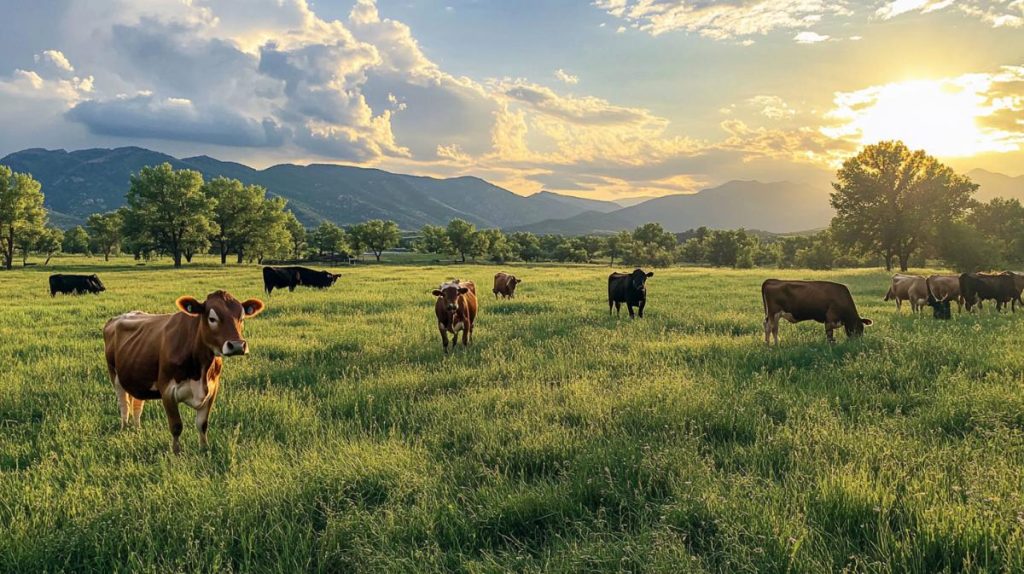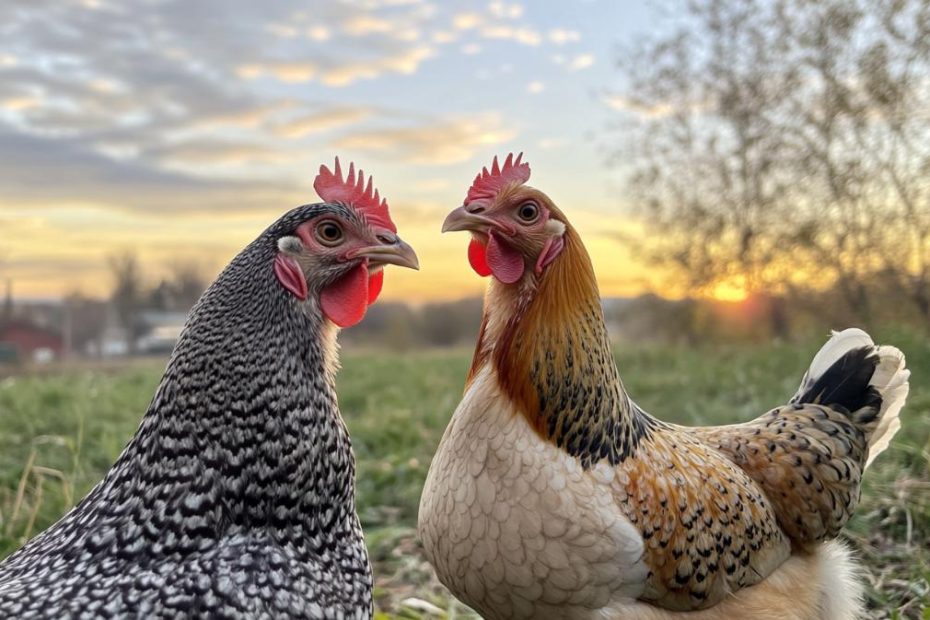Have you ever wondered if there’s a better way to produce our food? Industrial farming has become the norm, but it comes with a host of problems.
From animal welfare concerns to environmental damage, the current system leaves a lot to be desired.
Enter ethical farming – a promising alternative that addresses many of these issues. Ethical farming practices aim to produce food in a way that’s kinder to animals, better for the environment, and healthier for you.
In this article, we’ll look at 12 compelling reasons why ethical farming could be the solution we’ve been looking for. Get ready to find out how your food choices can make a real difference!
1. Higher Animal Welfare

Ethical farming puts animal well-being front and center. You’ll find happy hens scratching in the dirt and cows munching grass in sunny pastures.
These farms give animals room to roam and express natural behaviors. No cramped cages or crowded pens here! Your farm friends get to stretch their legs and wings.
Animal welfare is a top concern for many people. Ethical farming addresses this by providing better living conditions and care. Your dinner had a good life before it reached your plate.
2. Reduced Environmental Impact
Ethical farming practices can work wonders for our planet. You’ll be thrilled to know that these methods can help protect water resources and reduce pollution.
Imagine fields buzzing with life instead of drowning in chemicals. That’s the magic of ethical farming! You’ll see fewer pesticides and more natural pest control methods at work.
Plus, sustainable agriculture keeps soil healthy and full of life. Your veggies will thank you for the nutrient-rich dirt they grow in. Who knew farming could be so eco-friendly and delicious?
3. Better Soil Health

Ethical farming practices are like a spa day for your soil. You know how you feel after a good massage? That’s how your soil feels when you treat it right.
By using techniques like crop rotation and cover cropping, you’re giving your soil a chance to rest and rejuvenate. It’s like letting your soil take a vacation between harvests.
Sustainable farming practices can boost soil health, making it more fertile and productive. You’re essentially turning your farm into a five-star hotel for beneficial microorganisms.
4. Fair Trade Practices
Did you know that your shopping choices can make a big difference? Fair Trade practices are like a superhero cape for ethical farming. They swoop in to save the day for small-scale producers and workers.
When you buy Fair Trade products, you’re giving farmers a fighting chance. They get better prices and working conditions. It’s like giving them a high-five and a helping hand all at once!
Fair Trade also helps protect the environment. It’s like Mother Nature and farmers becoming besties. You get to enjoy your coffee or chocolate guilt-free, knowing you’re supporting a greener planet.
5. Support for Local Economies

Ethical farming isn’t just good for your taste buds – it’s great for your local economy too! When you buy from small farms, you’re keeping money in your community.
These small-scale farmers often have stronger ties to the area. They’re more likely to shop at local stores and hire local workers.
Your support helps create jobs and boost local businesses. It’s like giving your town a big, delicious hug!
6. Improved Food Quality
Ethical farming can make your food taste better and be healthier for you. When farmers treat animals well and grow crops without harsh chemicals, the results are yummier and more nutritious.
You might notice fruits and veggies from ethical farms have more flavor. They’re often picked at the right time and get to you faster.
Plus, meat and dairy from happy animals can be tastier and have more good stuff in them. It’s like the animals are saying “thanks for the TLC” through better food!
7. Sustainability Leadership
Ethical farming puts you at the forefront of sustainability. You’re not just growing food; you’re nurturing the planet too!
By choosing ethical farming methods, you become a green guru in your community. Your farm turns into a shining example of eco-friendly practices that others want to follow.
You’ll be the cool kid on the block, showing off your sustainable solutions to common farming issues. From water conservation to soil health, you’re leading the charge towards a greener future.
8. Transparent Supply Chains

Imagine knowing exactly where your food comes from! With ethical farming, you can trace your veggies from seed to plate. No more mystery meat or shady sourcing.
Transparent supply chains let you peek behind the curtain of food production. You’ll see how your carrots grow and where your milk comes from.
This openness builds trust between you and farmers. It’s like having a backstage pass to your dinner’s origin story. Plus, you can make choices that align with your values.
9. “Nobody made a greater mistake than he who did nothing because he could do only a little.” – Edmund Burke
This quote from Edmund Burke is perfect for ethical farming. You might think your small actions don’t matter, but they do!
Every time you buy ethical farm products, you’re making a difference. It’s like voting with your wallet.
Don’t be afraid to start small. Maybe you switch to free-range eggs or buy local veggies. These little choices add up and send a message to big farms.
Remember, you’re not alone. Lots of people are making small changes too. Together, you’re creating a big impact!
10. Biodiversity Protection

Ethical farming practices are your ticket to becoming a biodiversity superhero! By ditching harmful pesticides and embracing natural pest control methods, you’ll create a safe area for beneficial insects and critters.
You’ll be amazed at how quickly your farm becomes a bustling ecosystem. Crop rotation and mixed planting are like throwing a party for different plant species. They’ll mingle and thrive, creating a diverse tapestry of life.
By protecting ecosystems, you’re not just growing food – you’re nurturing a whole world of flora and fauna. It’s like being the cool landlord of nature’s apartment complex!
11. Enhanced Farmer Livelihoods
Ethical farming can boost your bottom line! By focusing on sustainable practices, you’ll reduce costs and increase profits. It’s like finding a golden egg in your chicken coop!
You’ll also diversify your income streams. Think of it as adding more flavors to your farm’s ice cream stand.
From agritourism to value-added products, the possibilities are as endless as a corn maze.
Plus, ethical farming often leads to better working conditions. Happy farmers, happy farm! Your quality of life will improve faster than a pig in mud.
12. Minimized Chemical Use

Last but not least, you know those pesky bugs and weeds that drive farmers crazy? Ethical farming has a secret weapon: less chemicals! By using natural pest control methods, you’re saying goodbye to harmful pesticides.
Think of it as a green party for your crops. Instead of dousing fields with chemicals, you’re inviting beneficial insects to the dance floor.
These little helpers keep pests in check without the nasty side effects.
And guess what? Your veggies will thank you too! They’ll be happier, healthier, and tastier without all those chemical inputs.
Plus, you’ll be doing Mother Nature a solid by keeping those chemicals out of the soil and water.
The Importance of Ethical Farming

Ethical farming practices are crucial for creating a sustainable and responsible food system. They protect the environment, ensure animal welfare, and support local communities.
Let’s see why ethical farming matters and how it can reshape agriculture.
Understanding Ethical Practices
Ethical farming focuses on sustainable organic agriculture. You’ll find farmers using natural methods to build healthy soil and avoid harmful chemicals.
They rotate crops to keep pests away and use compost instead of synthetic fertilizers.
Animal welfare is a big deal in ethical farming. You’ll see happy cows grazing in open fields, not cramped in tiny spaces. Farmers treat their animals with respect and care.
Ethical practices also support local economies. When you buy from ethical farms, you’re helping your neighbors and building stronger communities. It’s a win-win!
Challenges and Opportunities
Switching to ethical farming isn’t always easy. You might face higher costs at first, and yields can be lower. But don’t let that scare you off! The long-term benefits are worth it.
Here are some perks of ethical farming:
- Healthier food for you and your family
- Better soil health for future generations
- Reduced environmental impact
- Happier animals (and farmers!)
Ethical farming also opens up new markets. You can tap into the growing demand for organic and ethically-produced food. It’s a chance to stand out and build a loyal customer base.
Remember, every small step counts. You don’t have to change everything overnight. Start with one ethical practice and go from there. Your farm (and your conscience) will thank you!
Industrial Farming Issues

Industrial farming causes big problems for our planet and animals. It hurts the environment and makes life tough for farm animals.
Let’s look at why these issues matter to you.
Environmental Consequences
Industrial farms are bad news for Mother Nature. They pollute air and water big time.
Imagine your favorite lake or river getting yucky from farm waste. Gross, right?
These farms also gobble up tons of fresh water. That’s water you could be drinking or swimming in. Plus, they chop down forests to make room for more crops. Say goodbye to cute woodland critters!
Climate change? Yep, industrial farms are guilty there too. They pump out loads of greenhouse gases. It’s like they’re giving Earth a fever. Not cool, farms. Not cool at all.
Impact on Animal Welfare
Ever wonder how those farm animals are doing? Spoiler alert: not great. Factory farms cram animals into tiny spaces. It’s like stuffing your whole family in a closet. Ouch!
These poor critters often can’t move around or do normal animal things. No sunshine, no fresh air, no fun.
Just imagine being stuck in your bedroom forever. Boring and sad, right?
Farm animals also get pumped full of antibiotics. It’s not to keep them healthy, but to make them grow faster. That’s messing with nature, and it might even make you sick later. Yikes!
